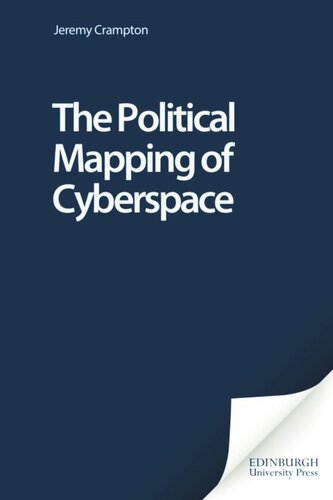

Most ebook files are in PDF format, so you can easily read them using various software such as Foxit Reader or directly on the Google Chrome browser.
Some ebook files are released by publishers in other formats such as .awz, .mobi, .epub, .fb2, etc. You may need to install specific software to read these formats on mobile/PC, such as Calibre.
Please read the tutorial at this link: https://ebookbell.com/faq
We offer FREE conversion to the popular formats you request; however, this may take some time. Therefore, right after payment, please email us, and we will try to provide the service as quickly as possible.
For some exceptional file formats or broken links (if any), please refrain from opening any disputes. Instead, email us first, and we will try to assist within a maximum of 6 hours.
EbookBell Team

4.3
88 reviewsGBS_insertPreviewButtonPopup('ISBN:9780748614134);
This book is about the politics of cyberspace. It shows that cyberspace is no mere virtual reality but a rich geography of practices and power relations. Using concepts and methods derived from the work of Michel Foucault, Jeremy Crampton explores the construction of digital subjectivity, web identity and authenticity, as well as the nature and consequences of the digital divide between the connected and those abandoned in limbo. He demonstrates that it is by processes of mapping that we understand cyberspace and in doing so delineates the critical role maps play in constructing cyberspace as an object of knowledge. Maps, he argues, shape political thinking about cyberspace, and he deploys in-depth case studies of crime mapping, security and geo-surveillance to show how we map ourselves onto cyberspace, inexorably and indelibly.
Clearly argued and vigorously written, this book offers a powerful reinterpretation of cyberspace, politics and contemporary life.